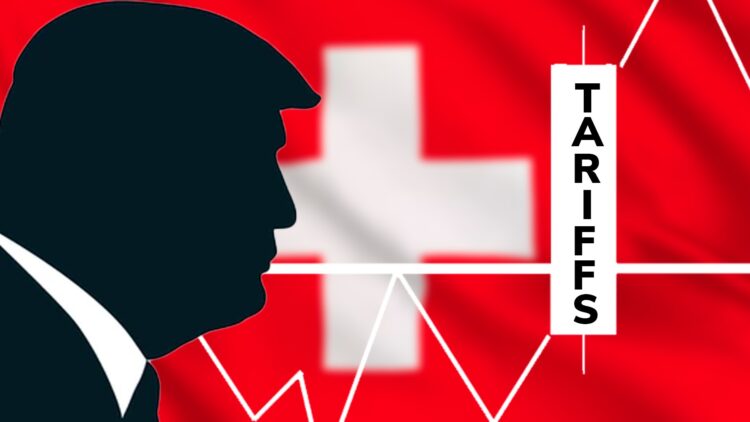Tariff, tariff, tariff – that is the word on the streets right now, and the Swiss officials are also trying to make it make sense. Businesses and governments must continually adjust to new opportunities and challenges in the dynamic global economy. Leaders must convene and consider the best course of action when legislation or global decisions cause uncertainty, particularly in important industries. Top politicians and significant corporations in a nation renowned for its robust pharmaceutical industry have recently initiated some crucial talks.
Swiss government to meet with pharmaceutical companies during U.S. tariff conversations
The Swiss government is due to meet this week with pharmaceutical firms that U.S. President Donald Trump has asked to lower their prices, as Switzerland seeks to negotiate down a new 39% tariff on its exports, two sources have told Reuters. Economy Minister Guy Parmelin and Health Minister Elizabeth Baume-Schneider will meet with executives from Roche ROG.S and Novartis (NOVN.S).
According to two people familiar with the matter, other companies may also take part. Roche and Novartis did not respond to a request for comment. A spokesperson for the health minister confirmed the meeting but declined to give any details or confirm the participants.
The pharma industry faces potential U.S. tariffs amid Section 232 review
Although pharmaceuticals are not included in the 39% U.S. tariffs which came into effect on Swiss imports last week, the industry is concerned by the outcome of the U.S. Section 232 national security investigation into the sector. This could result in tariffs on drug imports eventually reaching 250%. The results of the review are expected in the next few weeks.
The talks could also be about encouraging pharmaceutical companies to invest more in the United States, said a person familiar with the matter, to reduce Switzerland’s trade surplus with the U.S. and help reduce the 39% tariff, which covers exports including Swiss watches and chocolate. Trump has been pushing pharmaceutical companies to reduce the price of their drugs in the United States, which could make drugmakers increase their prices in Europe to compensate.
US tariffs’ effects on Swiss Pharma and upcoming discussions
Swiss pharmaceutical companies have been under pressure since the United States imposed tariffs. Higher tariffs may result in higher expenses, lower sales, and a change in investment choices for these businesses, which mostly depend on the U.S. market. Additionally, corporate planning has become more challenging due to the uncertainties surrounding these levies.
Among the main topics being covered are:
- Evaluating how tariffs affect a company’s earnings and operations.
- Investigating methods to reduce these expenses by changing the supply chain or using pricing techniques.
- Taking into account how government assistance, such as subsidies or diplomatic initiatives, can lessen the burden.
- Assessing the potential for further tariff reductions or removals through continued discussions with U.S. counterparts.
These forthcoming talks between Swiss authorities and pharmaceutical companies are a calculated attempt to strengthen Switzerland’s place in the world pharmaceutical market, not only a response to tariffs but also a heavy tariff conversation too. The government and business leaders intend to work together to create a cohesive strategy that strikes a balance between short-term assistance and long-term resilience.
If the 39% tariff were extended to cover pharmaceuticals, Swiss economic output could fall by more than 1%. Washington’s concerns have been driven by its 38.7 billion franc trade deficit with Switzerland, with pharma by far the biggest contributor. Swiss companies, including pharma, have already pledged to increase their spending in the US to avoid tariffs, which could potentially affect Swiss import tariffs too. Novartis said it plans to spend $23 billion to build and expand 10 facilities in the U.S., while Roche unveiled plans to invest $50 billion over the next five years, creating more than 12,000 new jobs.
GCN.com/Reuters


